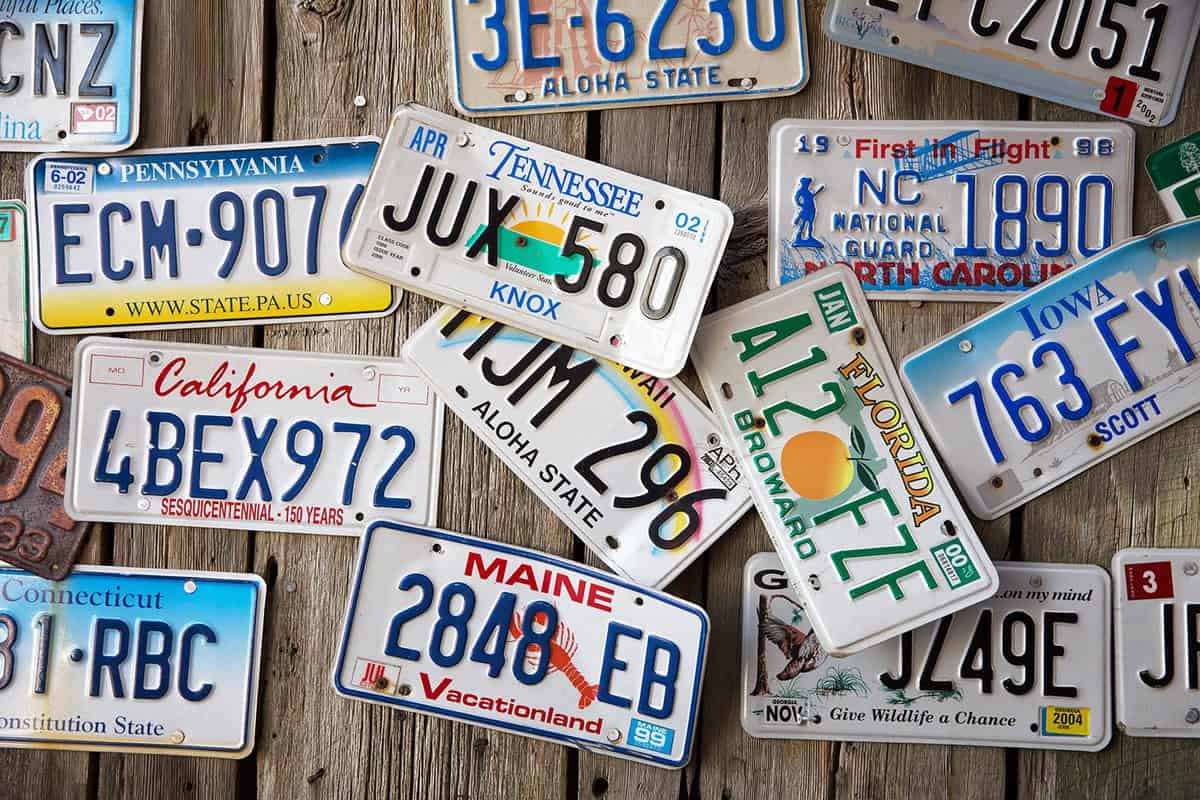When you purchase a new car, an essential but dull paperwork step is getting the registration. This raises the question - do dealerships register cars as part of the sales process, or is registration up to you?
We researched this topic so you'll know what to expect when buying a new car.
In certain states, the dealership provides temporary registration, and you must get the permanent one later. In other states, the registration fee is included in the total sale price.
However, you don't need to worry about immediately getting a title or driving illegally. The dealership has you covered temporarily.
Keep reading to fully understand the process and requirements of receiving your new car's registration through the dealership upon purchase.
Knowing what dealerships handle for registering cars takes the guesswork out of this paperwork step.
Does the Dealership Take Care of License Plates?
You will not receive your official license plates right after purchase.
Once all the payments and paperwork are taken care of, you'll receive a temporary license plate.

Some of that paperwork will be sent to the DMV for your official license plates.
After one to three weeks, you'll receive the official license plates in the mail.
In some states, you'll receive all the necessities after the paperwork is finished. Regardless of where you live, your car will be entirely in your name within 30 days.
Does the Car Dealership Give You the Title?

As mentioned, much of the paperwork will be sent to the DMV. Part of it includes the car title.
You won't receive the title immediately after the purchase. You'll need to wait for it to process, then receive it in the mail.
According to It Still Runs, expect a maximum of 20 days for the title to process.
Before you leave the dealership, receive a copy of the title application (and registration receipt).
That way, if you get pulled over, you'll have some proof that you're the owner of the vehicle.
For added documentation, have car insurance prepared before hitting the road.
If you finance your new car, getting a title will be a different process. We will cover this more in a later section.
How Long Does a Car Dealership Have to Give You a Title?

Since the title is part of the paperwork that gets forwarded to a DMV, the dealership won't directly give you the title.
However, they have a window of when that needs to be situated.
If you don't receive the documents you need within three weeks, call the DMV and the dealership to figure out what the hold-up is.
The above only applies to the purchase of a brand-new car paid in cash.
If you bought a used car, you should be walking out the door with the official title. It'll have the dealership's signature and yours, signifying that you own the vehicle.
Even more, you should inspect the title before making the purchase; it could have a vehicle history that makes the value more or less than what you're paying for.
How Long Does it Take for a Dealer to Send My Tag and Title?
You should have all that you need in your hands within 30 days after you have made the purchase.
However, you may not receive it from the dealer. You might obtain it directly from the DMV.
The Important 30-Day Rule
This time is important because it lets you drive with a temporary paper license plate while you wait for the real one.
It's important to get the real plates or title within 30 days to avoid legal issues.
Follow Up if Needed
If it's taking too long, call the DMV or where you bought the car to see what's happening.
Why Your Address Matters for Car Registration
When registering your car, it's crucial to provide the correct address to the DMV or the dealership handling the process.
Ensure your address matches the one on your driver's license and other identification documents.
Accurate address information ensures that your registration documents, license plates, and title are sent to the right place.
If you've moved to a new place, tell the DMV and other relevant institutions your new address.
This way, you'll get your important documents faster, and they won't get lost in the mail.
Registering Cars from Private Sellers
When purchasing a car from a private seller, the registration process falls entirely on the buyer.
In most cases, you'll need to obtain a signed title from the seller, complete a bill of sale, and bring these documents to the DMV, where you'll pay registration fees and taxes.
It's important to ensure that the seller's information on the title matches their identification and that the title is lien-free.
This process can differ from state to state, so check your local DMV's requirements for private car sales.
Note that buying from a private seller may involve more steps than purchasing from a dealership, but can also offer the advantage of potentially lower prices.
Registering a Used Car
When you get a used car, you must do a few extra things to register it.
- First, check the title to ensure no one else has a claim on the car (like a bank loan).
- Make sure the seller signs the title over to you.
- Then, check the car to see if it's safe and not polluting too much because some places need paper that says the car is okay.
- Be ready to pay any old taxes or fees for the car.
It might seem challenging, but doing these things helps you register your used car without problems.
What Happens if a Previous Owner Won't Give the Car Title?
We strongly advise that whenever you buy a used car, you sign the title in your name immediately before the purchase.
Some sellers will explain why they won't give you the title, but that's unimportant.
Keep frequent contact with the seller, urging them to give it to you. If that doesn't work, it's recommended to file a civil case in small claims court.
The case will be in your favor as long as you have the car and proof of its purchase.
Don't feel bad if you got the car without the title; it has happened to people before. Legally, the odds are in your favor, so stay positive.
Do You Get a Car Title When You Finance?
Financing a car means going through a noticeably different process than buying the car upfront.
When you pay with cash (or payment plan), the paperwork you fill out will be to put everything in your name.
But when you finance a car, only some documents are in your name. The title is not one of them.
Financing (or leasing) a car means that your bank or lender possesses the title in many states.
Because you are in the lender's/bank's debt, they will own the title until you pay off the loan or car in full, according to Car and Driver.
Afterward, the title is yours to keep or use in selling the vehicle.
If you decide to finance a vehicle, make sure your credit is decent enough and that you can afford to.
Having a good understanding of car loans will help avoid financial setbacks. Check out our list of items to bring before getting a car to prepare yourself better.
How Long Does it Take to Get Your Registration After Buying a Car?

In some states, you'd likely walk out the door with at least a temporary registration after the purchase.
Sometimes, you'll leave with a legitimate registration in your hands.
In other cases, it's around the same wait time as all the other items you must drive legally (three weeks).
Should you have to do the registration in person at the DMV, you'll need the following items:
- Car title
- Money to pay the sales tax
- Bill of sale
- Odometer reading
- Proof of insurance
- ID
If you have all of the above, go to the DMV and fill out a form for registration, pay the necessary fees, and walk away with the registration in your name.
How Long Can You Drive a New Car Without Registration?
That temporary license plate, title, and registration is a placeholder until you retrieve the real ones.
Each state has its laws and rules regarding the time frame allotted to use a temporary registration.
Generally, you can drive from the dealer or seller to wherever the car will be parked without worrying about getting fined.
The expiration date of temporary registrations and tags should indicate when they will no longer be valid.
If you're in a state where you have to retrieve the official documents yourself, we advise you to do that almost right after the vehicle purchase, if possible.
Wrapping Up: Car Registration Made Easy
All the information you'll need to register your car has been provided. We hope you make good use of this knowledge.
Feel free to check out our article about the next steps after buying a car.
Use this image to add this article to your Pinterest board:
![Couple standing face to face in showroom, Do Dealerships Register Cars for You? [and How Long It Can Take]](https://vehq.com/wp-content/uploads/2020/08/Do-Dealerships-Register-Cars-for-You-and-How-Long-It-Can-Take.jpg)
